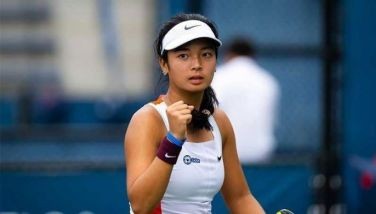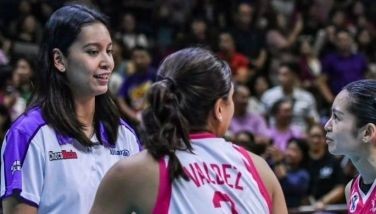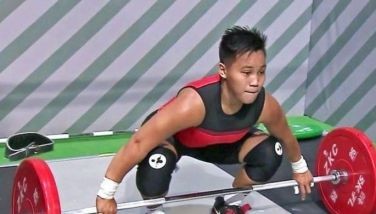Pilipinas Aguilas: Defying convention
At midday today, the country’s first-ever national team in tackle football makes its international debut against the most formidable odds ever. At stake: a spot in the 2015 International Federation of American Football (IFAF) World Cup in Switzerland. Their opponent: juggernaut Japan, the toughest team on the continent, playing on its home turf in Tokyo. Pretty long odds for a new team. But the Aguilas are hoping that the football gods will smile down on them and give them a spectacular debut.
The Aguilas, made up mostly of players from the five-year old ArenaBall Philippines league, has been defying convention from the outset. When they first started, flag football was still in its infancy, and American football was (and still is) not played anywhere except in some international schools. Most Filipinos don’t understand the sport, and hardly anybody watches it. Still, they plugged on, seeking out like-minded individuals who played the sport in school in the US, or athletes from other sports.
The misconception for the Aguilas, as it was with soccer’s Azkals and rugby’s Volcanoes, is that most of the players will be of mixed blood or foreign extraction. Of the 45 players currently in Japan, only 13 are Filipino-Americans. The rest are full-blooded, homegrown Filipinos. In fact, many migrated to tackle football from basketball, dragonboat, mixed martial arts, rugby and other contact sports. For some of them, being big may be a detriment in other sports, but in tackle football, they fit right in.
“I tried other sports that needed speed, and at my age, it wasn’t for me,†explained JP Suarez. “At my size, I’m really more suited to tackle football.â€
Timing has also been a big challenge for the Aguilas. The mother organization, the American Tackle Football Association of the Philippines (ATFAP) has officially been recognized by the Philippine Olympic Committee (POC), but this recognition is still being transmitted to the Philippine Sports Commission (PSC). Therefore, the Aguilas are still not eligible for government support for lack of the appropriate paperwork, and because of the eagle-eyed monitoring of the Commission on Audit (COA). For the Japan trip, each player paid for his own ticket, and the government was only able to help with travel tax exemption. Actually, the reason why the Philippines was matched up against Japan was merely a consequence of the near-simultaneous submission of their papers with the IFAF. Otherwise, they would have faced South Korea or Kuwait. The Koreans defeated the Kuwaitis to book their own seat to the World Cup already.
“That’s one of the quirks of the sport, I suppose,†says ATFAP head Dodi Palma, who bankrolled the initial sets of equipment when the sport was still being established. “There are very few teams in Asia, but it’s growing, there are active programs in other Southeast Asian countries, but they decided not to field teams yet. We jumped at the chance. Once you get on the field, you never know what could happen.â€
On the local front, once recognized by PSC, the Aguilas will be able to use the facilities at Rizal Memorial Sports Complex (whose football pitch renovation will be completed in May) or the one at Philsports. They are currently non-voting members of the POC, and are growing the sport in the country through flag football and the formation of clubs involving UAAP and NCAA schools. Some Aguilas are affiliated with other schools, as well, providing a potentially large base to build up flag football as a farm system for tackle.
“Some players get used to playing flag and want more. Some of them are looking for more contact,†adds Wally dela Cruz, a former mixed martial artist and dragonboat rower. “That’s also why we’ve been attracting athletes for other sports: they find tackle football more exciting.â€
To address the issue of injuries, Palma reveals that, in five years, ArenaBall has had no serious injuries. There are, in fact, more clubs wanting to join, boosted by awareness of the national team. The league opens its fifth season in late September.
After Japan, ATFAP will be preparing for friendlies with Kuwait and South Korea in the next months, while sharpening the cohesion of the Aguilas. The next major international tournament is still in 2016, giving them plenty of time to build their community and market the team and its players. If they miss this World Cup, they will aim for the 2019 edition.
Then again, who knows what could happen in Tokyo?
- Latest
- Trending



























